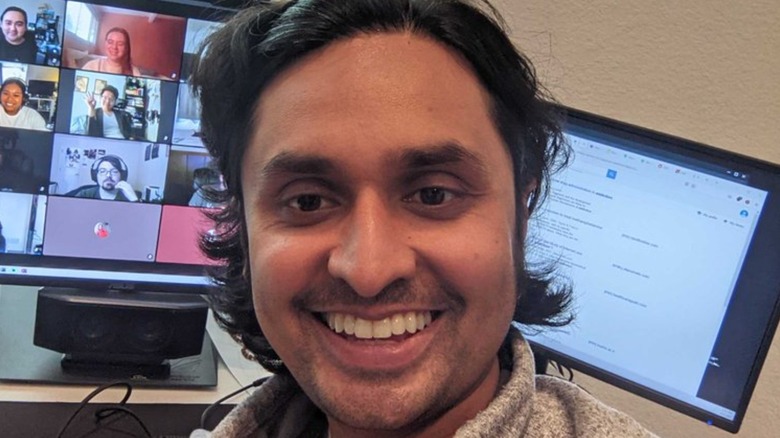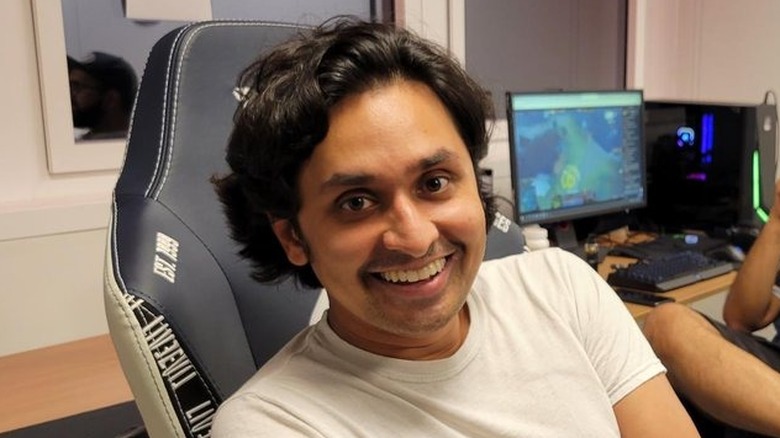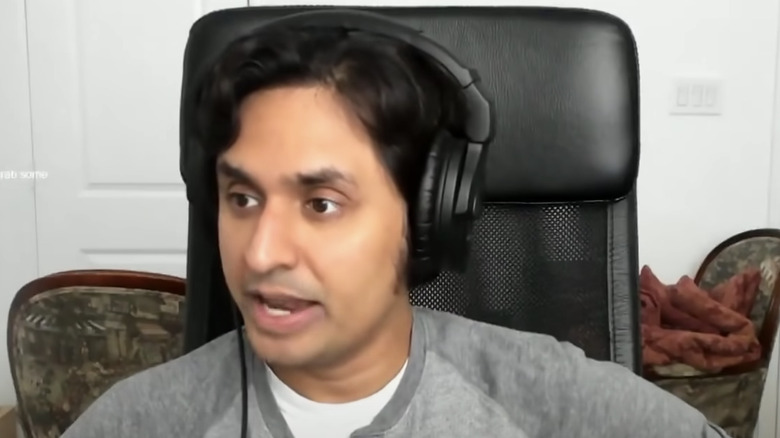Dr. K Got Honest About His Addiction
Video game addiction is a bit of a controversial topic, to say the least. While the World Health Organization acknowledged "gaming disorders" back in 2018, it also pointed out that it's probably only a "small proportion" of people who are affected by the disorder, out of all the people in the world who play video games. Of course, there have been some horrible cases of video game addiction documented over the years, with some leading to permanent injury or even fatalities, but there are also plenty of benefits from playing video games daily. Alok Kanojia, a.k.a. Dr. K, a.k.a. the guy behind the popular Twitch channel HealthyGamerGG, has spoken about his own experience with video game addiction on a number of occasions, explaining to viewers the types of changes he had to make in his own life because of it.
Dr. K has admitted on stream that he would skip classes in university to play "Diablo." And while he adored the game, these long sessions led to him feeling quite a bit of shame, and it created a vicious cycle of skipping a class to avoid the shame of skipping before, effectively blowing off his education. He explained that he could see his future "slipping away one day at a time." Eventually, Dr. K had to remove himself from games entirely to help himself.
Dr. K's gaming addiction and the start of HealthyGamerGG
As a result of his growing issues with video game addiction, Dr. K's education continued to suffer. He explained to Technology Review that he needed to make some serious changes in his life when his GPA slipped below a 2.0. As his grades declined, he left university at 21 with the intention of becoming a monk. Over the next several years, he spent a great deal of time in India studying meditation and reassessing his path in life.
During the time of intense introspection, Dr. K figured out how to manage his addiction and find ways to continue his education while still finding time for his favorite hobby. Not only that, but he devised a way to parlay his experiences with gaming addiction into a new type of counseling. This is how he began seeking out gamers around the world who were feeling consumed by the pastime, ultimately leading to the birth of HealthyGamerGG.
While Dr. K was able to make a change in his own life, he also knows it isn't something easy to do. He's spoken about video game addiction and his own ideas about the main causes behind it plenty of times on Twitch, where he helps others overcome the same problems. As he explained in his interview with Technology Review, "Every human being needs connection, and video games give us that.' Now, Dr. K offers guidance and a safe talking space for gamers who are hoping to find those same connections outside of playing video games.
Dr. K's theory on the cause of video game addictions
On several occasions, Dr. K has talked about his take on video game addiction and why the very term can be used in both problematic and dangerous ways. In 2021, when China instilled new rules for gaming that only allowed children under 18 to play games for 90 minutes a day, Dr. K spoke about the fact that gaming is basically a way for young people to fill their time.
However, Dr. K argued that video games are just a symptom of bigger problems. He mentioned that young people around the world are getting fed up with social issues, which could be the true cause behind decreased productivity around the world. While he admitted that video games can be addictive in various ways, he believed that it begins with young people who are just "uninterested in participating in society." This leads to those same people finding other ways to spend their time, and video games are a common answer in Dr. K's experience.
Using his own experiences with video game addiction paired with his theories, Dr. K has been running HealthyGamer to help people who are heavily invested online understand their mental health. This project crosses over with video game addictions quite frequently, and Dr. K has been able to help countless others with the same problem he once had.



